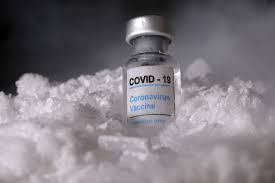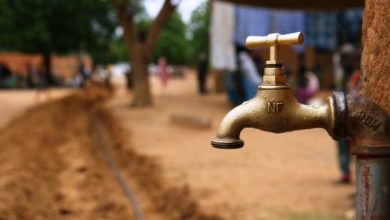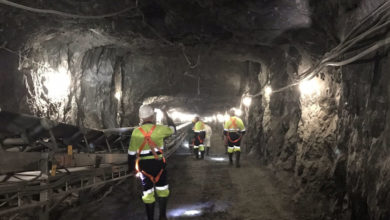
By Dumisani Nyoni
Whilst temporary public interventions such as lockdowns, social distancing, hand-sanitisation, among others, have been employed worldwide to slow down the rate of Covid-19 transmission, more permanent ways of stopping the pandemic are being sought.
To that end, some countries—especially those in the developed world—are busy researching and developing Covid-19 vaccines for their nationals and for export purposes.
So far, according to studies, researchers are currently testing about 66 vaccines in clinical trials on humans, and 20 have reached the final stages of testing. At least 90 preclinical vaccines are under active investigation in animals.
Some of the vaccines that have been approved include Pfizer-BioNTech; Moderna; Gamaleya; Oxford-AstraZeneca; CanSino; Johnson & Johnson; Vector Institute; Novavax; Sinopharm; Sinovac; Sinopharm-Wuhan; and Bharat Biotech.
While other countries are busy researching possible Covid-19 vaccines, Zimbabwe and other African countries appear to be deep in slumber.
Why are we not developing our own Covid-19 vaccine as a country, just like what other countries are doing?
Could it be the issue of lack of resources or just incompetence of our scientists and government officials?
Interviews conducted with key institutions, medical experts and government officials indicate that nothing much has been done to develop a Covid-19 vaccine in the country.
Health and Child Care deputy minister John Mangwiro said he knew nothing about Covid-19 vaccine being developed in the country as he was at a policy level.
“You can check with MCA (Medicines Control Authority of Zimbabwe), they are the ones who know. I don’t know anything because I am at the policy level. Those are the guys involved in drugs, I don’t do those, I am at a policy level, that’s all,” he said.
Contacted for comment, MCAZ spokesperson Richard Rukwata said: “People usually just refer to anything to do with medicine to me but what MCAZ does is, it reviews application for registration of medicines.”
“So until we have received an application from someone who is developing such a product locally, I have nothing to say with respect to that. There might be people who are developing something, maybe you can try calling the National Biotechnology Authority of Zimbabwe,” Rukwata said.
National Biotechnology Authority (NBA) chief executive officer and registrar Dr Deckster Tonny Savadye, however, said they were not at liberty to discuss “specific” activities.
“At the moment we are not at liberty to discuss specific activities. We can, however, answer general questions about how Biotechnology can be used to develop vaccines including vaccines for Covid-19,” he said.
NBA is an autonomous research and development institution with a mandate to develop Zimbabwe through the application of both conventional and cutting-edge biotechnologies.
Established through the National Biotechnology Authority of Zimbabwe Act of 2006 [Chap. 14: 31]; its role is to transform the country from a raw material-based into a knowledge–based economy through the judicious application of biotechnology in agriculture, medicine, energy and the environment
National Covid-19 taskforce coordinator, Agnes Mahomva, however, said there was a team of scientists who were conducting some research on the Covid-19 vaccine. She, however, could not be drawn to give more details on the issue.
Covid-19 vaccines help human bodies develop immunity to the virus that causes Covid-19 without humans having to get the illness. Different types of vaccines work in different ways to offer protection.
Besides offering protection, Covid-19 vaccines will bring about billions of dollars for the countries and institutions that have developed them.
This is because countries such as Zimbabwe will have to import them for their nationals.
The cost for each dose ranges from US$3 to US$37, depending on the vaccine. This means Zimbabwe might spend more than US$500 million (on doses only) on its 14 million population.
Medical expert Professor Solwayo Ngwenya, however, said developing a vaccine is a mammoth task especially for developing countries like Zimbabwe.
“That will be a very fantastic idea (for the country to develop its own vaccine). Can you imagine in your dreams and so forth, having your own vaccine, producing, anytime you have a new virus, you put so many millions of doses running here. That will be a wonderful thing to do,” he said.
“Unfortunately, this needs a lot of work and means a lot of vision, a lot of planning, a lot of money and takes years and years to develop. It’s not something you can just wake up and dream about.”
“The technology where the vaccines are produced its high tech and where are we going to get a high technology to produce vaccines? It will be something that they can start developing but it’s not for this coronavirus. It can be for other viruses in the near future,” he said.
Solwayo said as for now, there is no way that Zimbabwe could do a coronavirus development so quickly.
“We need to rely on imports then we invest in the future development of vaccines. We will need a lot of money and a lot of equipment and attract a lot of scientists to do it,” he said.
Before vaccines are approved, they have to meet the must-have criteria for safety and efficacy set out by the World Health Organisation (WHO).
It is also important to note that currently there is no COVID vaccine that has been approved by WHO, all are government or country approved.
For a vaccine to be approved, it must have gone through four stages of testing. These are laboratory tests; testing on few people; testing on a medium scale where it is reviewed and its safety determined; and large scale phase.
On a large scale phase, the vaccine is tested on many people but most importantly it is independently reviewed before approved.
Economist John Robertson concurred with Ngwenya, adding not many countries around the world have the technical skills in microbiology to produce a dependable vaccine and “I suspect Zimbabwe is not one of them.”
He said many years of experience in the vast field would be needed before even the most experienced scientists would have a starting point from which to start developing a vaccine that would prove useful.
“Even if the work proved successful, the multiplier process to produce, test, package, store, refrigerate, transport and distribute millions of doses would call for the use of highly capitalised specialist laboratories, factories and equally specialised handling equipment, all costing considerable amounts of money,” he said.
“Countries that claim to be able to deliver on promises to do all this have been working on viruses for years, investing hundreds of millions to build up that much capacity. Even now, none of them has succeeded in creating a vaccine against the common cold. So, it is a very difficult challenge, even for the most advanced companies and countries,” Robertson said.
Robertson said personally, he sees no prospect of Zimbabwe generating supplies of the needed vaccine, even though it might claim to have produced small samples that seem to work.
He said testing methods that are worthy of trust also take time.
“We need vaccine supplies immediately for millions of people, so our best option is to import it and to be ready to pay for it. If we had an attractive investment environment, perhaps one of the top world pharmaceutical firms could be persuaded to set up laboratories and factories in Zimbabwe. Johnson & Johnson is one of the world leaders,” he said.
“They used to have an important factory in Zimbabwe, but they found business conditions so difficult here that they decided to close down. That tells us where to start if we want to attract the investment funds and the expertise needed to catch up with world developments.”
Zimbabwe’s health system is facing a plethora of challenges, including lack of resources, mostly financial, as well as a host of institutional and governance issues all of which render service delivery problematic.
The health system is beset by demotivated health workers over poor remuneration, low morale and poor working conditions.
The Zimbabwean government should support its health and research institutions through funding and other means like what other countries are doing.
For instance, the United States Federal Government partnered with Moderna, Pfizer, Johnson & Johnson, Novavax, and AstraZeneca to help develop, produce, and administer Covid-19 vaccines as quickly as possible.
Under operation warp speed, the federal government pledged close to US$9 billion to fund the development and production of the vaccines.
Zimbabwe can effectively use its natural resources to capacitate its health and research institutions.
In his 2021 national budget, Finance minister Mthuli Ncube allocated ZWL$160 million (about US$2 million) for the equipment of the county’s laboratories and renovations of the National Institute of Health Research and government analyst laboratory buildings.
Currently, Zimbabwe is developing a draft Covid-19 vaccination framework for the roll-out of the vaccine, according to the government.
Zimbabwe is reportedly a party to the WHO-led Global Access Facility — Covax — which plans to secure and distribute millions of doses of the vaccine to developing countries, once licensed and approved.
The initiative, which seeks to secure at least 220 million doses, will enable the fast and equitable distribution of the vaccine.
Provisionally, the WHO distribution mechanism seeks to proportionally allocate doses until all countries have enough doses to cover 20% of their population.
Partners in the global health community, led by the WHO, collaborating with health research institutions, provided guidance to the pharmaceutical industry, for production and testing of candidate Covid-19 diagnostics, vaccines, and therapeutics.
MCAZ, in anticipation of submission of applications for emergency use authorisation (EUA), expedited review process (ERP) and registration of Covid-19 vaccines, developed its guidance on submission of Covid-19 vaccine applications for emergency use authorisation and registration.
What exactly is involved in producing a vaccine?
To apply for the registration of Covid-19 vaccine in Zimbabwe, the applicant must have an establishment licence to manufacture, package/label, test, import, distribute or wholesale a health product. During the application review process, applicants must demonstrate compliance with current good manufacturing practices.
All applications for the registration of Covid-19 vaccines should be accompanied by the appropriate risk management plan. Applicants may use an international revised management procedure. However, Zimbabwe specific issues should be considered, for example, HIV, tuberculosis, malaria among others.
To assess the safety of a vaccine, MCAZ requires an adequate number of vaccine recipients; monitoring for a sufficiently long time.
This requirement is needed to detect common and expected adverse reactions, as well as events that are less common but potentially more severe. The safety database for a Covid-19 vaccine should have at least 3,000 study participants who have been vaccinated with the dosing regimen intended for authorisation.
The data should come from phase three randomised placebo-controlled trials that allow for the collection of adverse events in the vaccinated (at least 3,000 participants) versus the placebo (at least 3,000 participants) group.
This enables the detection of more common adverse events, which are in the range of at least 1 in 1,000 doses given. These adverse reactions should be monitored closely for at least 7 days to adequately characterise the frequency of those events.
The uncommon, rare or adverse events that may take longer to manifest should also be monitored closely.
Following authorisation, clinical trial participants should be monitored for as long as feasible. The ideal time is at least 1 to 2 years. This length of time is needed to assess the duration of protection and the potential for enhanced disease.
MCAZ may issue terms and conditions requiring the sponsor to provide longer-term clinical follow-up and post-marketing safety data on adverse events of special interest, such as vaccine-associated enhanced respiratory disease, following authorisation.
MCAZ requires robust evidence of the vaccine’s ability to prevent Covid-19 infection from well-conducted phase 3 clinical trials in humans. A target threshold of at least 50% efficacy may be considered reasonable for Covid-19 vaccines depending on the risk or benefit ratio.
The clinical trials for Covid-19 vaccine should demonstrate that the vaccine reduces the incidence of a symptomatic SARS-CoV-2 infection by at least 50% in people who are vaccinated, compared to a control group of people who don’t receive the vaccine.
Enough people should be enrolled so that the trial is sufficiently powered to exclude an efficacy result below 30%. The trial must have a sufficient number of participants with severe Covid-19 infection in the control group to show that the vaccine is effective.
This efficacy estimate is regardless of when the data are analysed, including any pre-specified early looks at the data while the clinical trial is underway.







Well researched & written article. Very informative. Thank you CITE